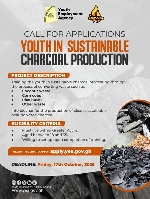Food inflation debate all the time tilts in favour of NPP — Razak Kojo Opoku reveals
 Dr Razak Kojo Opoku
Dr Razak Kojo Opoku
The Founding President of the UP Tradition Institute, Dr Razak Kojo Opoku, has argued that the ongoing debate over Ghana’s food inflation trends favours the New Patriotic Party (NPP), asserting that despite a fall in the inflation rate, the cost of food remains significantly higher under the current administration.
According to data from the Ghana Statistical Service (GSS), the Consumer Price Index (CPI) rose from 229.4 in August 2024 to 255.7 in August 2025.
This, Mr. Opoku explained, means that households are spending approximately GHS 26.30 more on the same basket of goods and services than they did a year earlier.
“Falling inflation does not mean that prices have gone down,” he emphasised.
“It simply means that prices are rising at a slower pace. Families are still paying more for food and other essentials than they did before.”
He cited examples showing how the cost of living has continued to climb despite a reduction in food inflation from 19.1% in August 2024 to 14.8% in August 2025.
“A family that spent GHS 50 per week on food last year now spends around GHS 56 for the same basket,” he said, adding that staple items such as kenkey have not seen any price reversals — moving from GHS 2 to GHS 5 and remaining high.
Mr. Opoku further noted that the rise in food prices under the current government demonstrates that “the illusion of lower food inflation” masks deeper economic challenges.
He attributed the misleading impression to two main factors — base effects and currency stability.
“Prices were already abnormally high in 2024,” he explained. “So, comparing 2025 against that inflated base makes the inflation rate appear lower, even though the actual prices remain high.”
He added that IMF-backed currency stability has slightly eased prices of imported goods such as rice and wheat, but local staples like maize and gari have surged dramatically.
According to his data, gari prices have risen from GHS 12 in 2020 to GHS 25 in 2025, while a bag of maize has increased from GHS 150 to GHS 400 over the same period.
Drawing a comparison between the two major political parties, Mr. Opoku argued that the NPP’s management of food prices and inflation was more favourable to consumers.
He stated that under the NPP, when the CPI was 229.4 in 2024, the cost of food was “record low and stable,” despite the higher inflation rate of 19.1%.
He interpreted the lower CPI as reflecting “increasing purchasing power, lower cost of living, and more stable prices.”
Conversely, he contended that the current CPI of 255.7 under the NDC government represents “reduced purchasing power, higher cost of living, and escalating food prices,” despite the nominally lower inflation rate.
Mr. Opoku concluded by urging policymakers to focus on price stability, income growth, and social protection to provide real relief for Ghanaians.
“Until prices fall or incomes rise to meet living costs, celebrating ‘lower inflation’ is premature and misleading,” he said.
Source: Classfmonline.com/cecil Mensah
Trending Business

GRA confiscates drinks without tax stamps in Accra
16:20
CIBI rebukes Fourth Estate, defends NLA-KGL licensing deal
10:33
Gold price soars to record $3,825 per ounce
17:16
Finance Minister welcomes IMF team for fifth programme review
13:39
CMB Abuja Market land dispute: GPRTU exposed
08:27
Maroon Capital Microfinance crowned CIMG Microfinance Company of the Year
06:31
Metro Mass Transit boosts monthly revenue to GH¢14 million despite fewer buses — MD
11:47
YEA opens applications for youth in sustainable charcoal production project
10:54
Bryan Acheampong donates critical navigation equipment to Volta Lake Transport
09:15
Food inflation debate all the time tilts in favour of NPP — Razak Kojo Opoku reveals
09:19



